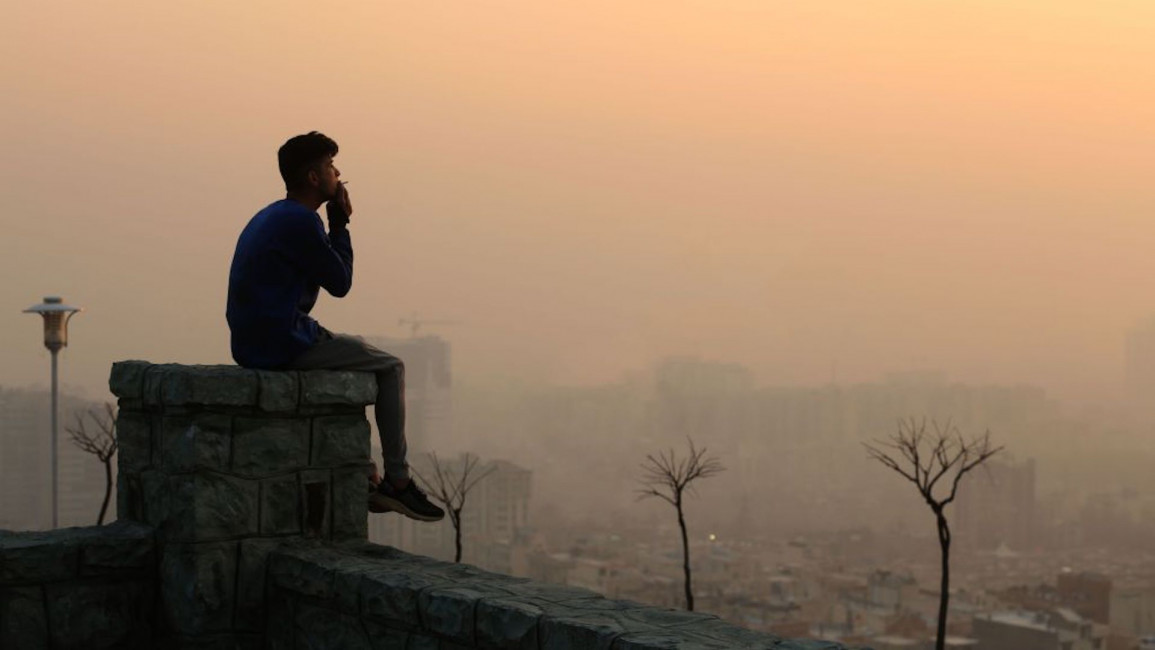Air pollution in Iranian cities reaches 'hazardous' levels
Pishva in the Tehran province has the worst air pollution, while the city of Qorveh, located in the Kurdiish region, has the cleanest air.
The Air Quality Index (AQI) - a yardstick for measuring air contamination - declared an alarming increase in the past four weeks of pollution in the capital, classifying it as “heavily polluted.”
The Tehran Air Quality Control Company said recent contamination of the city’s air has been worse than last year, putting further strain on the country’s health infrastructure amid the global Covid-19 pandemic.
Government officials have placed the blame on “unessential” inner-city commuters, according to reports by Al-Monitor, which cited the Iranian outlet Shafaqna.
However, experts say the problem is a lot more complex.
Continuous traffic jams, poor public transport infrastructure, a steep population growth, and its unique geographic location have made Tehran highly susceptible to increasingly poor air quality.
Twitter Post
|
The capital suffers from what experts call 'temperature inversion', which causes smog to be trapped within the city for months on end in the winter.
This placed Tehran amongst the most polluted cities in the world in 2018, according to the World Health Organisation.
The city is responsible for one-third of the 12,000 deaths that occur in Iran due to air pollution each year, a 2018 report by the World Bank stated.
While the government has placed restrictions on traffic, air quality has continued to worsen. Now, it has been identified that the country’s production of fossil fuels may be the cause, according to reports by Tehran's Air Quality Control Department.
“We have no other option than consuming mazut,” Oil Minister Bijan Namdar Zanganeh said, while the director of the Department of Environment Issa Kalantari said this reliance is due to the US sanctions imposed on the Iranian oil market.
Even though Iran introduced a collective effort to resolve the issue of pollution under the “Clean Air Law” in 2017, Shina Ansari, head of the Sustainable Development Department at Tehran’s municipality, said the law continues to be ignored by the relevant authorities.


![President Pezeshkian has denounced Israel's attacks on Lebanon [Getty]](/sites/default/files/styles/image_684x385/public/2173482924.jpeg?h=a5f2f23a&itok=q3evVtko)



 Follow the Middle East's top stories in English at The New Arab on Google News
Follow the Middle East's top stories in English at The New Arab on Google News


